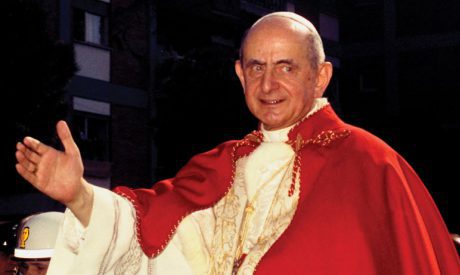Wherever one chooses to start the story of the modern simplification of the papacy, a key point along the way has to be the first time the world really saw a pope display a broken heart in public, even flirting with rebuking God.
It happened on May 10, 1978, the 38th anniversary of which is today.
The day before, on May 9, Italian Prime Minister Aldo Moro was executed by a left-wing Italian terrorist movement called the “Red Brigades.” Moro was a close friend of Pope Paul VI, who had made great efforts to save him, and Paul was devastated by the loss.
Moro knew Pope Paul, now “Blessed Paul VI,” from their days together in FUCI, the Federation of Catholic University Students. In the short run, Moro’s murder sapped whatever strength Paul VI had left, arguably hastening his own death three months later.
Moro had been kidnapped 55 days earlier, while on his way to Parliament to savor what was to be his defining political achievement: the compromesso storico, a plan to bring Italy’s Communist Party into a governing alliance with the Christian Democrats in order to promote national stability.
His policy of a cautious opening to the Communists tracked with Pope Paul’s own policy of Ostpolitik, or dialogue with the Soviet bloc.
Paul’s turmoil was clear from his public statements, both before and after his friend’s death.
In a rare departure from what was then still the customary royal plural of the papacy, Paul VI had addressed a first-person appeal to the terrorists to free Moro on April 23, 1978. In a note in the pope’s own handwriting published by Osservatore Romano, the Vatican newspaper, the pope wrote:
“I am writing to you, men of the Red Brigades … you, unknown and implacable adversaries of this deserving and innocent man, I pray to you on my knees, liberate Aldo Moro simply and without any conditions.” Continue reading
Sources
- John L. Allen Jr. editor of Crux.
- Image: OSV Newsweekly
News category: Features.




